
Find Help
More Items From Ergsy search
-

What are the common symptoms of a cold?
Relevance: 100%
-

How to Treat a Common Cold
Relevance: 96%
-

How long does a common cold typically last?
Relevance: 89%
-

Can cold weather cause a cold?
Relevance: 79%
-

What are Cold Sores?
Relevance: 78%
-
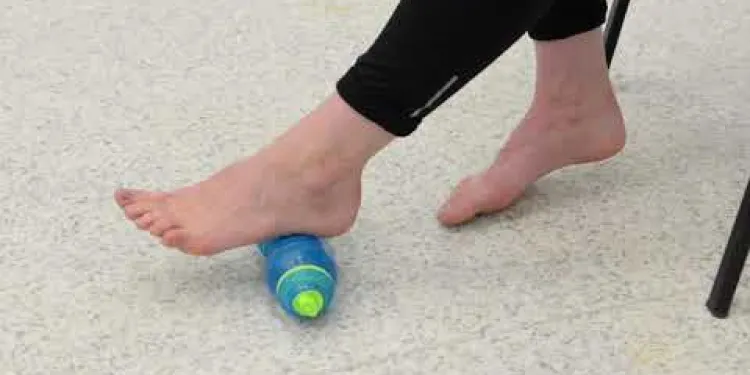
Plantar Fascia Cold Therapy
Relevance: 77%
-

Are cold sores contagious?
Relevance: 76%
-

Is there a cure for cold sores?
Relevance: 76%
-
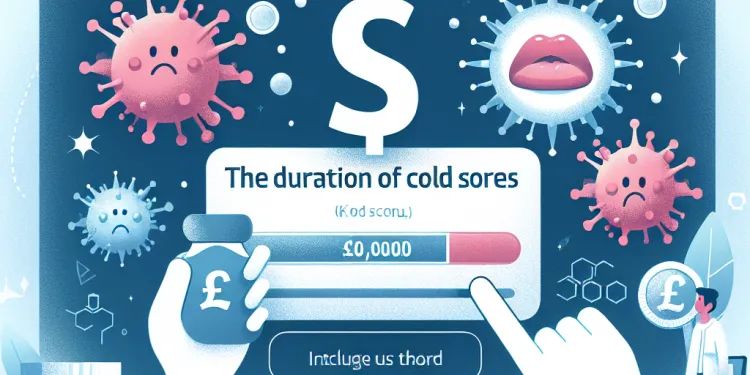
How long do cold sores last?
Relevance: 76%
-

Can I take antibiotics for a cold?
Relevance: 74%
-

What are the symptoms of a cold sore?
Relevance: 73%
-

Should I see a doctor for a cold?
Relevance: 72%
-

Is there a way to cure a cold quickly?
Relevance: 71%
-

How to treat a cold | NHS
Relevance: 71%
-

What triggers a cold sore outbreak?
Relevance: 68%
-

What causes cold sores?
Relevance: 68%
-
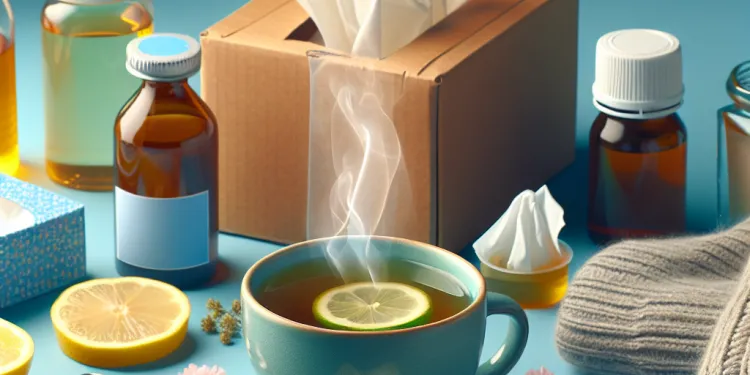
How can I treat a cold at home?
Relevance: 68%
-

How are cold sores transmitted?
Relevance: 68%
-

How can I prevent cold sores?
Relevance: 67%
-

Is it safe to exercise with a cold?
Relevance: 67%
-

What are common treatments for ADHD?
Relevance: 66%
-

Is Vitamin C effective against colds?
Relevance: 65%
-

Can orange juice help prevent colds?
Relevance: 63%
-

Honey 'as good as antiviral creams' for cold sores | NHS Behind the Headlines
Relevance: 63%
-

How do I treat my child's cold? (9 - 30 months) | NHS
Relevance: 62%
-

Can I use a humidifier to help with my cold symptoms?
Relevance: 61%
-

Is it safe to take cold showers during a heatwave?
Relevance: 61%
-
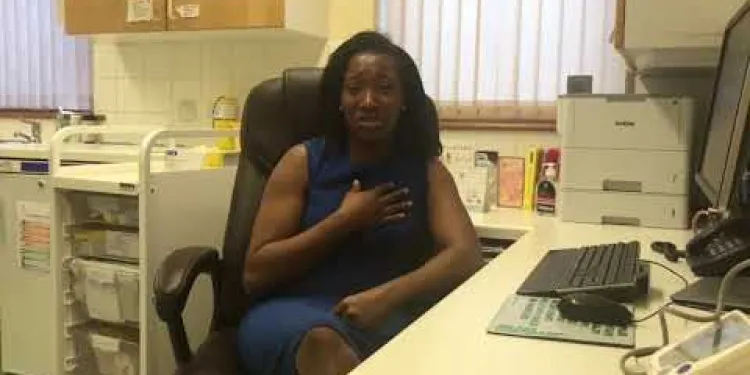
What should you do if you have a cough or cold?
Relevance: 60%
-

Can children take the same cold medications as adults?
Relevance: 58%
-

Dealing with Common Childhood Illnesses
Relevance: 58%
-

Is it okay to use ice packs or cold showers to cool down?
Relevance: 58%
-
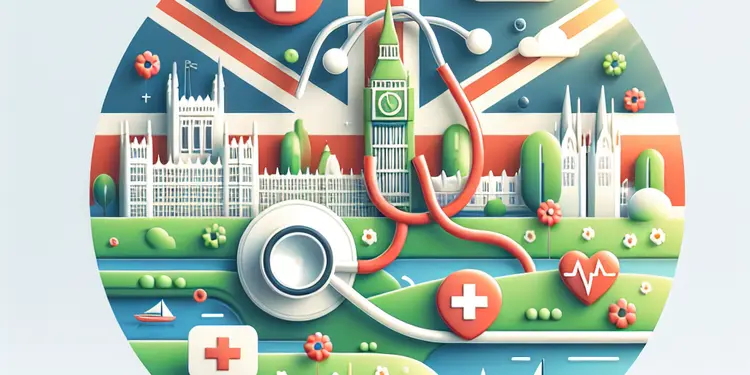
What are common treatments for health-related anxiety?
Relevance: 56%
-
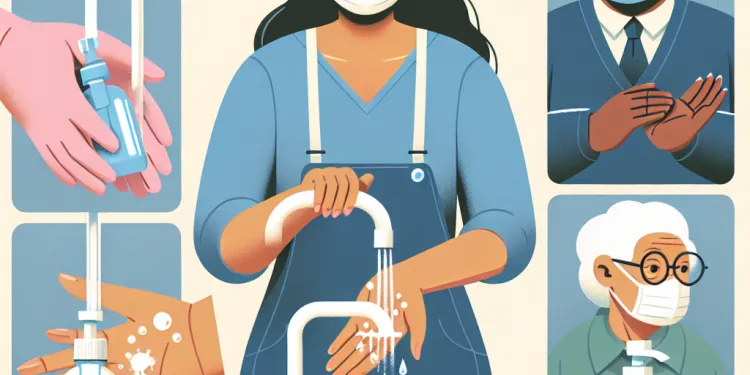
How can I prevent spreading my cold to others?
Relevance: 55%
-
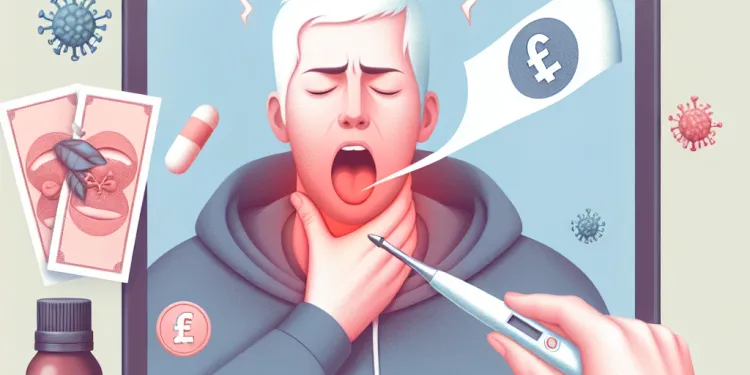
What is the best way to treat a sore throat from a cold?
Relevance: 55%
-

Can I receive the Warm Home Discount and Cold Weather Payment?
Relevance: 55%
-

Understanding Seasonal Flu: Prevention and Treatment
Relevance: 53%
-

What is a common use of paracetamol?
Relevance: 52%
-

What are the common symptoms of asthma?
Relevance: 51%
-

What are the common treatment options for prostate cancer?
Relevance: 50%
-

What is the treatment for chickenpox?
Relevance: 44%
How to Treat a Common Cold
The common cold is a viral infection that affects the upper respiratory tract, causing symptoms like a runny nose, sore throat, coughing, and sneezing. While there is no cure for the common cold, there are several ways to alleviate its symptoms and speed up recovery. This guide provides tips tailored for residents in the United Kingdom.
Stay Hydrated
Drinking plenty of fluids is crucial when you have a cold. It helps to replace lost fluids and keeps the throat moist. In the UK, common beverages like water, herbal teas, or clear soups are excellent choices. Hot drinks can offer comfort and help relieve nasal congestion. Avoid caffeinated or alcoholic drinks, as they can lead to dehydration.
Rest and Sleep
Getting ample rest is vital for recovery. Your body needs energy to fight off the virus, and rest allows your immune system to function effectively. Ensure you have a comfortable resting environment; play soothing music or white noise from a device to aid in sleep if necessary.
Manage Symptoms
Over-the-counter medications such as paracetamol or ibuprofen can help reduce headaches, fever, and body aches. Always follow the dosage instructions provided or consult with a pharmacist. Inhalations with steam, possibly with a drop of eucalyptus oil, can help relieve nasal congestion. Ensure you practice safety to avoid burns.
Consider Humidity
In the UK, especially during the colder months, dry indoor air can irritate the respiratory tract. Using a humidifier or placing a bowl of water near radiators can add moisture to the air, which may ease breathing and congestion.
Maintain a Nutrient-Rich Diet
A balanced diet rich in vitamins and minerals supports the immune system. Foods high in vitamin C, such as oranges and red peppers, or zinc, like legumes and nuts, can be beneficial. Additionally, comforting British classics, like a warm bowl of homemade soup, can be both nourishing and soothing.
When to Seek Medical Advice
While most colds resolve within a week or so, it's important to consult a healthcare professional if symptoms persist beyond 10 days or if they worsen. Additionally, if you experience severe symptoms, such as chest pain, shortness of breath, or high fever, seek prompt medical attention.
How to Treat a Common Cold
A common cold is a virus that makes your nose run, throat sore, and makes you cough and sneeze. You can't cure a cold, but you can make it feel better and get well faster. Here are some simple tips for people in the UK.
Stay Hydrated
Drink lots of fluids when you have a cold. This helps keep your throat moist. In the UK, drinking water, herbal teas, or clear soups is a good idea. Hot drinks are comforting and help with a stuffy nose. Do not drink coffee or alcohol, as they can make you dehydrated.
Rest and Sleep
Resting is very important when you are sick. Your body needs energy to fight the virus. Make sure you have a comfy place to rest. You can listen to calming music or sounds if this helps you sleep.
Manage Symptoms
You can take medicine like paracetamol or ibuprofen to help with headaches, fever, and aches. Always read the instructions or ask a pharmacist. Breathing in steamy air, with a little eucalyptus oil, can help a stuffy nose. Be careful not to burn yourself.
Consider Humidity
In the UK, indoor air can be dry, especially in winter. This can make your throat and nose feel worse. Use a humidifier or put a bowl of water near heaters to make the air moist. This can help with breathing.
Maintain a Nutrient-Rich Diet
Eating healthy foods helps your body fight a cold. Foods with vitamin C, like oranges or red peppers, and foods with zinc, like beans and nuts, are good. A warm bowl of soup can be comforting and good for you.
When to Seek Medical Advice
Most colds go away in about a week. But, if your cold lasts more than 10 days or gets worse, see a doctor. Also, if you have chest pain, trouble breathing, or a high fever, it's important to get medical help quickly.
Frequently Asked Questions
What are the common symptoms of a cold?
The common symptoms include a runny or blocked nose, sore throat, sneezing, coughing, and a general feeling of being unwell.
How can I treat a cold at home?
Rest, stay hydrated by drinking plenty of fluids, and consider over-the-counter medications for symptom relief such as paracetamol or ibuprofen.
Is there a way to cure a cold quickly?
There is no cure for a cold, but you can alleviate symptoms and possibly shorten the duration by taking good care of yourself. Rest and hydration are key.
Can I take antibiotics for a cold?
No, antibiotics are not effective against viral infections like the common cold.
Should I see a doctor for a cold?
Most colds can be managed at home, but consult a doctor if symptoms worsen or persist beyond 10 days.
How can I prevent spreading my cold to others?
Practice good hygiene, such as washing your hands frequently, using tissues when you sneeze or cough, and avoiding close contact with others.
Is it safe to exercise with a cold?
Mild exercise may be fine if you have only a head cold, but it's best to rest if you're feeling very unwell or have a fever.
Can cold weather cause a cold?
Cold weather itself doesn't cause a cold, but you may be more likely to catch a virus when you spend time indoors in close contact with others.
Is Vitamin C effective against colds?
Vitamin C might help to reduce the duration of cold symptoms, but evidence is mixed and it is not a guaranteed preventative measure.
Can children take the same cold medications as adults?
No, some cold medications are not suitable for children. Always check dosage guidelines or consult a pharmacist.
How long does a common cold typically last?
A common cold usually lasts 7 to 10 days, with symptoms peaking around days 3 to 4.
What is the best way to treat a sore throat from a cold?
Soothe a sore throat by drinking warm liquids, using throat lozenges, or gargling with salt water.
Can I use a humidifier to help with my cold symptoms?
Yes, a humidifier can add moisture to the air, which might help ease nasal congestion and coughing.
Are there any natural remedies for a cold?
Some people find relief with honey, ginger tea, or steam inhalations, but these aren't scientifically proven to cure a cold.
When is it safe to return to work or school after having a cold?
You can return when you feel well enough and are no longer contagious, usually around a week after symptoms start.
What are the signs of a cold?
A cold can make you feel sick. Here are some things to look out for:
- Your nose is runny or blocked.
- You might cough a lot.
- Your throat can feel sore.
- You could sneeze often.
If you have a cold, drink lots of water and rest. Ask an adult to help if you feel very unwell.
Common signs of feeling sick are a runny or stuffy nose, sore throat, sneezing, coughing, and just not feeling well.
You can use pictures to help understand better, or ask someone to read with you.
How can I feel better from a cold at home?
Take a break and rest. Drink lots of water or juice to stay hydrated. You can take medicine from the shop, like paracetamol or ibuprofen, to feel better.
Can you get better from a cold fast?
A cold makes you feel unwell and tired. Here are some ways to feel better:
- Rest: Sleep and take breaks.
- Drink Water: Drink plenty of water or warm drinks.
- Healthy Food: Eat fruits and vegetables.
- Medicine: Ask a grown-up if medicine might help.
Remember, colds take time to go away. Be kind to yourself!
You can't cure a cold, but you can feel better and maybe make it go away faster by taking care of yourself. Rest and drinking lots of water are important.
Can I use medicine for a cold?
No, antibiotics do not work on viruses like the common cold.
Do I need to go to the doctor for a cold?
If you have a cold, you usually don't need to see a doctor. Most colds get better on their own in a few days. You can rest, drink plenty of water, and stay warm to feel better.
But, you should see a doctor if:
- Your cold lasts more than 10 days.
- You have trouble breathing.
- You have a high fever.
- You feel very weak or have other health problems.
If you feel unsure, talk to an adult or call a health helpline for advice.
Using a calendar can help you keep track of how long you have been sick.
You can take care of most colds at home. But if you feel worse or still have a cold after 10 days, talk to a doctor.
How can I stop my cold from spreading to other people?
Keep clean and healthy. Wash your hands a lot. Use a tissue if you sneeze or cough. Try not to be too close to other people.
Can I do exercise if I have a cold?
Having a cold means you feel unwell. It is important to know if exercise is safe when you are sick. Here's a simple way to understand:
- If you feel okay and only have a runny nose or sore throat, light exercise like walking is usually fine.
- If you have a cough, chest pain, or feel very tired, it's best to rest.
Always listen to how your body feels. If you feel too sick, resting is the best choice. You can talk to a doctor if you are unsure.
Supportive tools:
- Use tissues for your nose.
- Drink water to stay hydrated.
It's okay to do some light exercise if you just have a runny nose or a slight cold. But if you feel very sick or have a fever, it's better to rest and not exercise.
Can cold weather make you sick?
Cold weather doesn’t make you sick. But when it’s cold, you stay inside and might be near other people who are sick. This makes it easier to catch a cold.
Does Vitamin C help with colds?
Does taking Vitamin C help you feel better when you have a cold? Some people believe it can help. You can find Vitamin C in oranges and other fruits.
If you want to know more, asking a doctor or a parent can help. They can tell you if Vitamin C is good for colds.
Vitamin C might help you feel better faster when you have a cold. But it doesn’t always work, and it might not stop you from getting sick in the first place.
Can kids use the same cold medicine as grown-ups?
KIDS: Cold medicine for adults can be too strong for kids. Ask a doctor before giving any medicine.
PARENTS: Read the label on the medicine bottle. It tells you if kids can take it and how much to give them.
TOOLS: If you need help, use pictures or ask a doctor or pharmacist. They can help you pick the right medicine for your child.
No, some cold medicines are not safe for kids. Always check the rules about how much to give or ask a pharmacist for help.
How many days does a cold usually last?
A cold is when you feel sick with a runny nose, cough, and sneezing.
A cold usually lasts for about 7 to 10 days. This means it goes away in about one week.
If it lasts longer than two weeks, tell an adult or see a doctor.
You can use tissues for your nose, drink water, and rest to feel better.
A cold usually makes you feel sick for about 7 to 10 days. It feels worst on days 3 and 4.
How can I help my sore throat when I have a cold?
Here are simple ways to feel better if your throat hurts:
- Drink warm drinks like tea or soup.
- Try eating a spoonful of honey.
- Use a warm cloth on your neck.
- Rest your voice by talking less.
- Gargle with warm salt water.
These things might help make your throat feel better.
When your throat hurts, you can feel better by drinking warm drinks. You can also suck on throat sweets or rinse your mouth with salty water.
Can a humidifier help me feel better when I have a cold?
Yes, a humidifier can help you feel better when you have a cold. It adds moisture to the air, which can make it easier to breathe. The wet air can help stop your nose and throat from feeling dry.
If you need help using a humidifier, ask an adult for help. They can show you how to use it safely.
Yes, a humidifier can put water in the air. This might help make stuffy noses and coughing feel better.
What natural ways can help with a cold?
Some people feel better when they use honey, drink ginger tea, or breathe in steam. But these things do not have scientific proof that they can cure a cold.
When can I go back to work or school after a cold?
Wait until you feel better.
If you have a fever, stay home until it goes away.
Wash your hands often. Cover your mouth when you cough or sneeze.
Ask a doctor or nurse if you are unsure.
Use easy tools like pictures or videos to help you understand.
You can come back when you feel better and can't spread germs to others. This is usually about one week after you first get sick.
Useful Links
This website offers general information and is not a substitute for professional advice.
Always seek guidance from qualified professionals.
If you have any medical concerns or need urgent help, contact a healthcare professional or emergency services immediately.
Some of this content was generated with AI assistance. We’ve done our best to keep it accurate, helpful, and human-friendly.
- Ergsy carfully checks the information in the videos we provide here.
- Videos shown by Youtube after a video has completed, have NOT been reviewed by ERGSY.
- To view, click the arrow in centre of video.
- Most of the videos you find here will have subtitles and/or closed captions available.
- You may need to turn these on, and choose your preferred language.
- Go to the video you'd like to watch.
- If closed captions (CC) are available, settings will be visible on the bottom right of the video player.
- To turn on Captions, click settings .
- To turn off Captions, click settings again.
More Items From Ergsy search
-

What are the common symptoms of a cold?
Relevance: 100%
-

How to Treat a Common Cold
Relevance: 96%
-

How long does a common cold typically last?
Relevance: 89%
-

Can cold weather cause a cold?
Relevance: 79%
-

What are Cold Sores?
Relevance: 78%
-

Plantar Fascia Cold Therapy
Relevance: 77%
-

Are cold sores contagious?
Relevance: 76%
-

Is there a cure for cold sores?
Relevance: 76%
-

How long do cold sores last?
Relevance: 76%
-

Can I take antibiotics for a cold?
Relevance: 74%
-

What are the symptoms of a cold sore?
Relevance: 73%
-

Should I see a doctor for a cold?
Relevance: 72%
-

Is there a way to cure a cold quickly?
Relevance: 71%
-

How to treat a cold | NHS
Relevance: 71%
-

What triggers a cold sore outbreak?
Relevance: 68%
-

What causes cold sores?
Relevance: 68%
-

How can I treat a cold at home?
Relevance: 68%
-

How are cold sores transmitted?
Relevance: 68%
-

How can I prevent cold sores?
Relevance: 67%
-

Is it safe to exercise with a cold?
Relevance: 67%
-

What are common treatments for ADHD?
Relevance: 66%
-

Is Vitamin C effective against colds?
Relevance: 65%
-

Can orange juice help prevent colds?
Relevance: 63%
-

Honey 'as good as antiviral creams' for cold sores | NHS Behind the Headlines
Relevance: 63%
-

How do I treat my child's cold? (9 - 30 months) | NHS
Relevance: 62%
-

Can I use a humidifier to help with my cold symptoms?
Relevance: 61%
-

Is it safe to take cold showers during a heatwave?
Relevance: 61%
-

What should you do if you have a cough or cold?
Relevance: 60%
-

Can children take the same cold medications as adults?
Relevance: 58%
-

Dealing with Common Childhood Illnesses
Relevance: 58%
-

Is it okay to use ice packs or cold showers to cool down?
Relevance: 58%
-

What are common treatments for health-related anxiety?
Relevance: 56%
-

How can I prevent spreading my cold to others?
Relevance: 55%
-

What is the best way to treat a sore throat from a cold?
Relevance: 55%
-

Can I receive the Warm Home Discount and Cold Weather Payment?
Relevance: 55%
-

Understanding Seasonal Flu: Prevention and Treatment
Relevance: 53%
-

What is a common use of paracetamol?
Relevance: 52%
-

What are the common symptoms of asthma?
Relevance: 51%
-

What are the common treatment options for prostate cancer?
Relevance: 50%
-

What is the treatment for chickenpox?
Relevance: 44%


